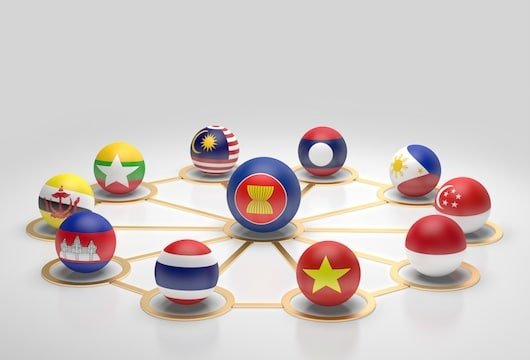
Indonesia, Malaysia, and Thailand hold the key to the jobs of the future, new UK Foreign Secretary Liz Truss said.
In a recent press statement, Truss revealed that after the Brexit referendum, Britain has been looking toward the Indo-Pacific region, specifically in the areas of technology, artificial intelligence, and quantum computing.
The United Kingdom and ASEAN also recently signed a new partnership, which led to Truss’s official visit to the region to advance discussions on closer economic and tech ties.
Truss landed in Malaysia on November 7th – she is expected to meet Prime Minister Ismail Sabri and foreign minister Saifuddin Abdullah to forge stronger ties on free trade, among a host of other partnerships.
“Southeast Asia will be the engine of the global economy and I want Britain to be part of that, upgrading our economic and security relations with the region to reflect its growing importance,” she said.
In 2020, the UK’s trade with ASEAN countries was worth around $45 billion. Given the region’s 670 million population and the expectation that it will be the world’s fourth-largest single market by 2030, the UK government’s initiative to strengthen ties with ASEAN is a high priority for the former.
“Deeper ties are a win-win, delivering jobs and opportunities for British people while ensuring an open, secure and prosperous Indo-Pacific. Working with key Southeast Asia partners will help us promote freedom and democracy across the world,” Truss added.
Other countries that have made strategic inroads into Southeast Asia are China, Australia, South Korea, Japan, Turkey, and Taiwan. This is likely a result of ASEAN countries making strides in opening up their markets to foreign business and partnerships.
For example, Indonesia, the region’s largest economy, recently passed the Omnibus Law. The law is expected to stimulate more local and foreign investments and improve the ease of doing business, while generating more jobs for the country’s 270 million population.
Earlier this month, Southeast Asia’s financial markets have seen a rise in investor money as the region enters a long-awaited economic reopening. The IMF also expects that the five key ASEAN economies (Singapore, Indonesia, Malaysia, Thailand, and the Philippines) will grow at a rate of 5.8% in 2022, which would exceed China’s growth rate of 5.6%.

Be the first to comment